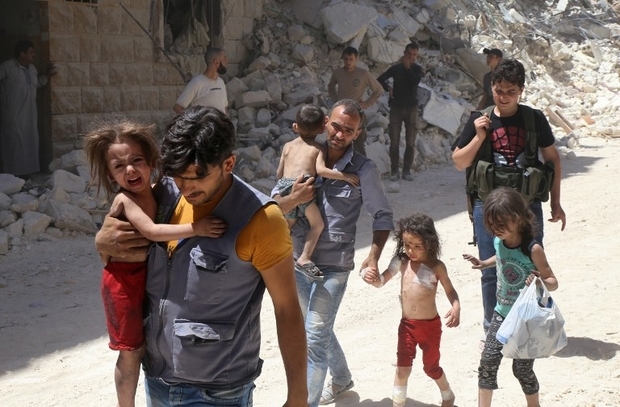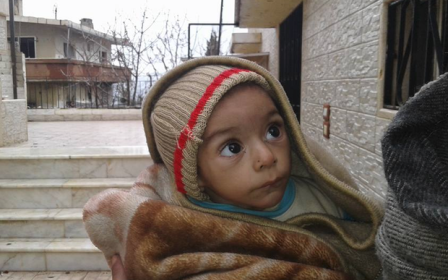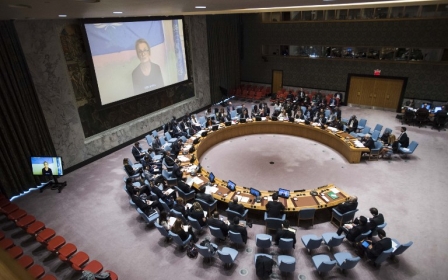UN calls for immediate access to thousands under siege in Syria

The UN has called for "immediate" access to besieged parts of Syria as more than half a million civilians continue to live under siege across the country.
The warning comes as temperatures continue to plummet and conditions in the besieged areas deteriorate across the country.
Among the 700,000 currently living under siege, more than 300,000 children have no access to food and medical supplies, the UN said, adding that due to lack of access it did not have detailed on the ground information about conditions in isolated areas.
UNICEF spokesman Juliette Touma told Middle East Eye that the UN issued its latest warning to "draw attention to the severe and critical situation of people trapped under siege".
"Our priorities as UNICEF is to facilitate the delivery of assistance and to have teams on the ground to conduct assessments of the situation in areas currently under siege," said Touma.
Touma stressed the urgency in allowing the UN into besieged areas to assess the situation as it had "no up to date first-hand information of the situation on the ground in besieged areas".
The joint UN statement said that Syrians in 15 different locations across the country were currently under siege, the majority by Syrian government forces.
"We – indeed, the world – must not stand silent while parties to the conflict continue to use denial of food, water, medical supplies, and other forms of aid as weapons of war," the statement said:
Despite the latest ceasefire announcement, various NGOs and aid organisations have continued to be denied entry to areas across Syria which are in desperate need.
Alun Mcdonald, a spokesan for Save the Children, told MEE that most of the besieged areas remained unsafe as "families continue to live in fear of snipers and bombing."
Mcdonald added: "Most of the besieged areas still haven’t received any aid convoys at all for many months. Save the Children has local partner agencies working inside some of these areas, trying to keep schools open and provide psychological support to children, but they need much more help from outside."
Starvation and siege
The besiegement of towns and cities has been a common tactic in the Syrian civil war over the past five years.
The consequences of besieging areas have led to civilians being starved to death due to restrictions on basic food and medical supplies.
Former UN Chief Ban-Ki-Moon last year said that "the use of starvation as a weapon of war is a war crime.”
A report by the Syrian American Medical Society (SAMS),which supports health centres in Syria, concluded that hospital attacks were used by the Syrian government to displace civilians and "force the surrender of besieged areas".
The Syrian government and opposition rebel groups have both besieged various parts of Syria.
Areas currently under siege by the Syrian government include the towns of Madaya and Deir Ezzour.
The villages of Fuaa and Kefraya meanwhile continues to be besieged by armed opposition rebels despite being partially evacuated last year.
Internal documents leaked to MEE last year revealed that the UN was downplaying the impact of sieges imposed by the Syrian government.
The documents showed that the UN were removing words like "siege" and "besieged" at the behest of the authorities.
Touma could not comment on behalf of the whole UN but said that UNICEF had consistently used the terms siege and besieged in all its documents.
New MEE newsletter: Jerusalem Dispatch
Sign up to get the latest insights and analysis on Israel-Palestine, alongside Turkey Unpacked and other MEE newsletters
Middle East Eye delivers independent and unrivalled coverage and analysis of the Middle East, North Africa and beyond. To learn more about republishing this content and the associated fees, please fill out this form. More about MEE can be found here.




